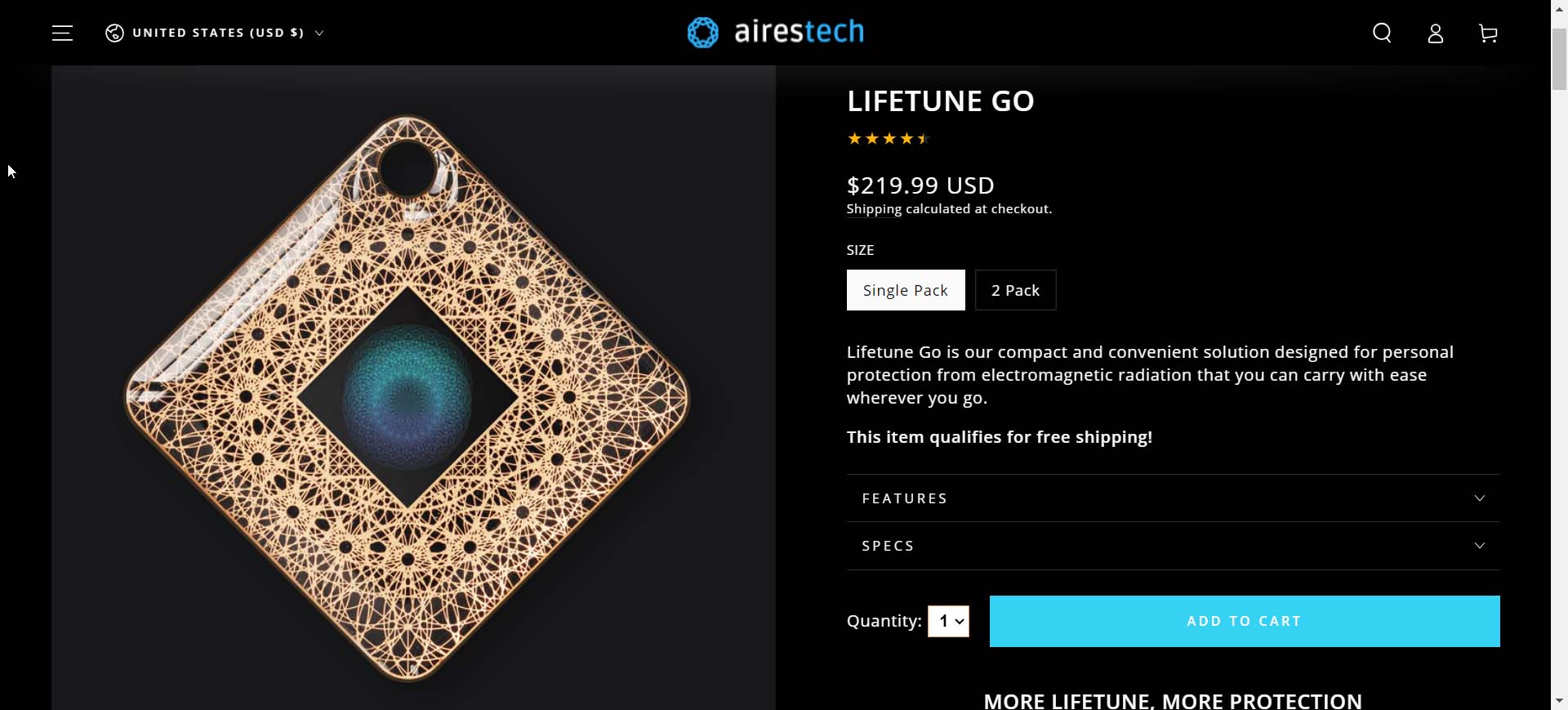In the wake of a viral tech video debunking its claims, Aires Tech has mounted a defense of its controversial Lifetune device—a $240 amulet-like product promoted by Russell Brand that purportedly protects users from the “harmful effects” of WiFi and electromagnetic radiation.
The Canadian company, which recently partnered with the UFC, found itself under intense scrutiny after popular YouTube channel Linus Tech Tips published a comprehensive analysis challenging the scientific validity of the product. The video demonstrated through various testing methods that the device had no measurable impact on electromagnetic fields.
Aires Tech’s response came in the form of a lengthy blog post titled “Debunking ‘Linus Tech Tips'” where the company attempts to counter the criticism by reframing how their product should be evaluated.

Shifting the Goalposts
The core of Aires’ defense hinges on a critical redefinition of their product’s purpose. While many consumers might assume the device blocks harmful radiation, Aires now clarifies: “Aires devices are not designed to block RF signals, and for good reason. Blocking RF would interfere with device functionality, rendering our phones and Wi-Fi devices useless.”
Instead, the company claims their device uses “modulation to alter the waveform structure of EMFs to reduce their biological impact without changing their intensity.” This explanation conveniently explains why traditional measurement tools can’t detect any difference when the amulet is present.
The Language of Legitimacy
Aires Tech’s marketing materials are filled with complex terminology like “fractal resonance,” “coherent matrices,” and “biotropic fields.” In their rebuttal, they defend this language, stating these “aren’t buzzwords – they are well-established principles in physics and engineering.”
However, the application of these terms in Aires’ marketing appears disconnected from their established scientific meanings. The blog post acknowledges that these concepts “may sound complex” but insists they’re necessary for accurately describing their technology’s functionality—despite providing no testable mechanism.
The Evidence Question
Perhaps most notably, Aires attempts to redirect evaluation of their product away from physical measurements and toward biological tests, claiming: “Since Aires devices reorganize EMFs into less biologically disruptive patterns, biological tests such as EEGs or oxidative stress markers are a better way to evaluate their effectiveness.”
They cite “peer-reviewed studies” but faced criticism when Linus Tech Tips pointed out that many of these papers are labeled as “opinion” documents. Aires defends this by explaining that the “opinion” label reflects “a crucial step in the scientific validation process” rather than undermining credibility.
The Celebrity Connection
Missing from Aires’ rebuttal is any mention of Russell Brand, the controversial former comedian who has become one of the product’s most visible promoters. Brand, who has recently pivoted to alternative health content amid serious allegations against him, has featured the product prominently in his content.
The partnership follows a pattern observed with other Aires promoters—the company has reportedly paid influencers largely in shares rather than cash, suggesting a business model more focused on stock valuation than product efficacy.
Scientific Consensus on EMF Exposure
While Aires Tech references the World Health Organization’s classification of RF radiation as a “Group 2B carcinogen” to support their concerns, they omit crucial context: this classification means “possibly carcinogenic” and includes substances like pickled vegetables and aloe vera extract.
The scientific consensus remains that non-ionizing radiation from consumer electronics and WiFi networks presents minimal health risks at standard exposure levels.
The Bottom Line
Despite Aires Tech’s detailed rebuttal, they have yet to provide independently verifiable evidence that would satisfy basic scientific scrutiny. Their $240 amulet continues to rely on complex terminology and celebrity endorsements rather than reproducible scientific testing.
For consumers concerned about electromagnetic radiation, the established scientific community recommends simpler approaches: maintaining reasonable distance from high-output devices and understanding that the inverse square law rapidly diminishes radiation intensity with distance.
And no, a funky colored amulet will not help you with that.


